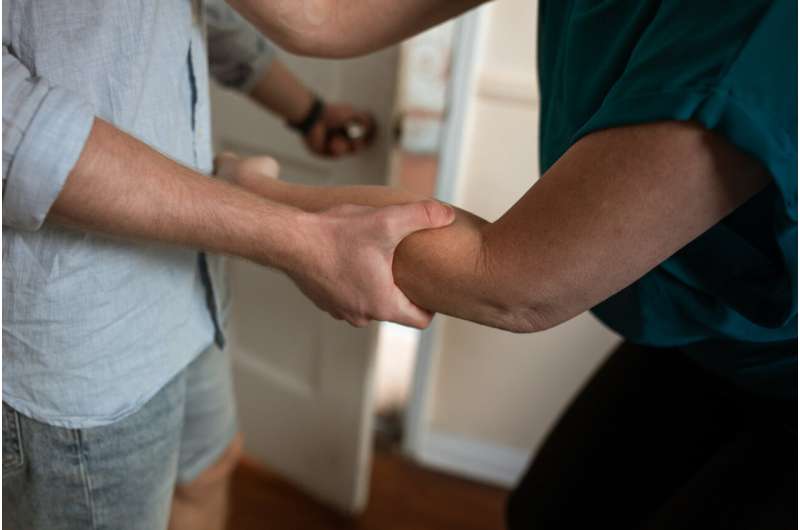Sexual abuse survivors who aren't believed are at higher risk of poor mental health

Survivors of sexual assault who encounter negative responses from family members when they disclose their abuse are at higher risk of poor mental health later in life, a new study by UNSW medical researchers has shown.
It is hoped that the study—and subsequent research—can help better inform mental health interventions and strategies to avert the longer-term emotional difficulties and risks that abuse survivors encounter later in life.
"There is ample evidence that sexual abuse is widespread among women—for example, we know that nearly 1 in 5 adult women globally, and approximately 20% of Australian women report exposure to sexual abuse in childhood," says study lead author Associate Professor Susan Rees from UNSW Medicine's School of Psychiatry.
"The association between exposure to sexual abuse and a wide range of common mental disorders and adverse psychosocial outcomes is also well established.
"However, there are only few studies that have tried to qualitatively understand the possible range of sexual assault disclosure responses from parents and relatives—girls' and women's most likely confidantes—as well as the survivors' associated emotional reaction, and mental disorder later in life."
For this study, the researchers conducted interviews with 30 adult female survivors of sexual abuse who sought support from the Royal Prince Alfred Hospital's Sexual Assault Counselling Service.
To better understand the interpersonal complexity of the survivor's experiences, the team enabled the survivors to explore their experiences in a confidential one-on-one setting with skilled counselors. Together, they plotted the survivor's experience on a visual timeline.
Survivors described the main three toxic responses from family members when they—often as a child—disclosed the sexual assault.
"Women described being ignored, blamed for the abuse or being threatened that some harm would come to them or the family if they speak out," A/Prof Rees says.
Women who had these negative disclosure experiences then reported a range of adverse psychosocial outcomes experienced later in their lives—including social isolation, taking drugs, recurrent or persisting mental disorder and future risk of abuse, including bullying at school.
"In short, we found that these negative responses are strongly associated with mental disorders and future adversity later in life—particularly if the negative disclosure experience occurred during childhood," A/Prof Rees said.
The researchers hope that this more nuanced understanding may help to better inform interventions and public campaigns to encourage society to work towards breaking the silence that protects perpetrators and obscures the pervasive harms caused by sexual abuse against children and women.
"For example, parents need to better understand the importance of responding with affirming and caring responses if they are confronted with disclosures, given that the period immediately following a disclosure may be a critical window where survivors are particularly vulnerable," A/Prof Rees says.
For health professionals, the researchers recommend special training to identify and respond to negative disclosure experiences.
And at a societal level, the researchers say they hope that the contemporary public attention for sexual violence, steered by the #metoo movement, will help promote "public acknowledgment of men's culpability, rather than women's responsibility."
"We need to harness this impetus at the community level to overcome denial and victim blaming in the home, too," A/Prof Rees concludes.
The study was a collaboration between UNSW Medicine and the Royal Prince Alfred Hospital's Sexual Assault Counselling Service. The Service is planning future research on this topic.
"Our sample was non-representative and we therefore can't generalize our findings to the wider population of women who have been sexually abused—so we need more research," A/Prof Rees says.
More information: Susan Rees et al. Believe #metoo: sexual violence and interpersonal disclosure experiences among women attending a sexual assault service in Australia: a mixed-methods study, BMJ Open (2019). DOI: 10.1136/bmjopen-2018-026773



















